MercoPress. South Atlantic News Agency
Tag: economy
-
Thursday, October 17th 2019 - 09:54 UTC
September inflation in Argentina reaches 5.9% and 53.5% in twelve months

Argentina consumer prices rose 5.9% in September, the country’s statistics agency said on Wednesday, the sharpest jump in a year amid a flaring economic crisis in Latin America’s no. 3 economy. That brought year-to-date inflation to 37.7%, the National Institute of Statistics and Censuses (INDEC) said, while rolling 12-month inflation was running at 53.5%.
-
Tuesday, October 15th 2019 - 09:51 UTC
Brazil's truck makers anticipate a strong 8% growth prospect this year

Brazil’s largest truck makers are expressing optimism again about the growth prospects for Latin America’s largest economy, even as the country continues to struggle to rebound from a deep recession that began in 2015.
-
Saturday, October 12th 2019 - 09:10 UTC
Fed announces supply of reserves plan to avoid “cash crunches”
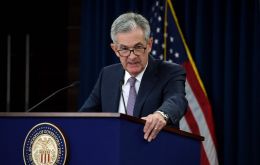
The Federal Reserve has announced a new program to boost liquidity in the US financial plumbing and allow the central bank to better manage interest rates, but without changing monetary policy.
-
Friday, October 11th 2019 - 09:49 UTC
Trade Integration more important for Latin America and the Caribbean as growth slows, World Bank
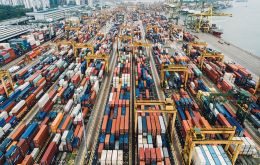
The Latin America and Caribbean (LAC) region has entered a new phase of weak economic performance, but increased integration in international trade and global value chains could reinvigorate economic growth.
-
Thursday, October 10th 2019 - 09:50 UTC
Deflation in Brazil: consumer prices during September slipped 0.04%
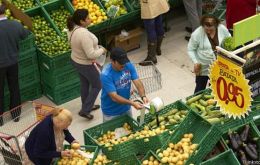
Brazilian consumer price inflation fell to its lowest in more than a year in September, official figures on Wednesday showed, a reading below the central bank’s target that is likely to strengthen expectations of another cut in interest rates.
-
Wednesday, October 9th 2019 - 09:45 UTC
Global trade tensions have investment on hold and promote poverty, World Bank claims
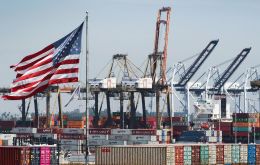
As global trade tensions persist, investments are put on hold and without that cash to boost economic growth, poverty could surge, the World Bank's chief economist warned Tuesday. Without growth “inevitably, people will struggle”, Pinelopi Koujianou Goldberg said in an interview.
-
Friday, October 4th 2019 - 09:40 UTC
Argentine industrial activity dropped 6.4% in August and 8.1% so far this year

Industrial activity in Argentina dropped 6.4% during August compared to a year ago and 2.8% over last July, totalling a slide of 8.1% so far this year, according to the official stats office, Indec.
-
Saturday, September 28th 2019 - 09:59 UTC
Opposition candidate wants to re-profile Argentine sovereign debt following on Uruguay's case in 2003

Argentine presidential candidate Alberto Fernandez indicated he would tackle the country's debt problem by adopting a strategy similar to that of Uruguay, which successfully extended its bond maturities in 2003.
-
Friday, September 20th 2019 - 10:22 UTC
Argentine Central Bank will produce more Pesos: higher inflation is expected

According to estimates among analysts, the Argentine Peso's production will be around $ 300,000 million for the remainder of the year, estimating inflation for 2020 even higher than this year. 80% of that issuance corresponds to the last month of the year, breaking the objective that the Central Bank of Argentina (BCRA) of “zero-emission” had set and jeopardized the exchange control as it works since August.
-
Thursday, September 19th 2019 - 10:12 UTC
Uruguay avoids recession, but the economy is stagnant
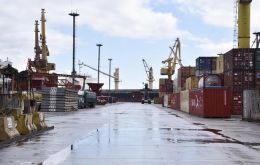
The Central Bank of Uruguay (BCU) released the report of the country's quarterly economic situation, which reports that the Uruguayan economy grew by only 0.1% year-on-year and 0.3% in the second quarter of the year, compared to the first three months of the year, when it registered a 0.1% drop.
